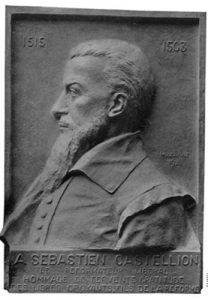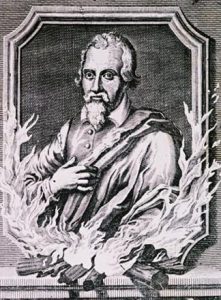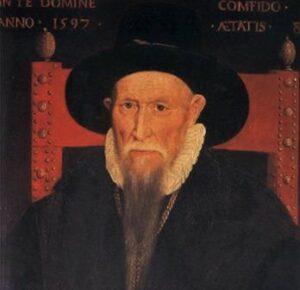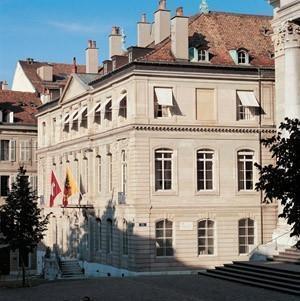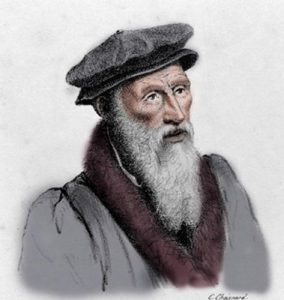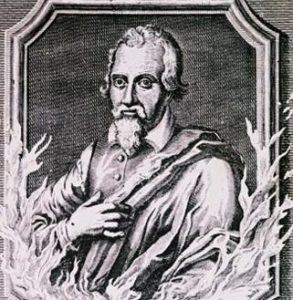A pedagogue, a humanist and a theologian
Castellion was born near Nantua (in the Jura area), he studied in Lyon and turned to protestant. He went to Strasbourg in 1540 where he met Calvin. Back in Geneva, Calvin asked him to head the Collège de Rive.
He disagreed with Calvin on some issues and thus could not become a pastor in Geneva as he had wished. He left for Basel in 1545 and was finally appointed as a teacher of Greek at the University in 1553 after some difficult years working in different trades such as a print reviewer.
Castellion was a prolific writer. As a pedagogue he wrote short plays for to help children learn Latin. He also published texts and translations of classical Greek authors.
Translating the Bible
In 1555 Castellion published a translation of the Bible, Old and New Testaments, following principles that at the time were revolutionary. First, he acknowledged the ambiguity of some passages, and the possibility of understanding them in diverse ways. He used familiar language in order to be understood by uneducated people. His translation shocked because the usage of very vernacular expressions was considered unworthy of the grandeur of the Bible. Nowadays modern translations of the Bible in everyday French take up Castellion’s plan.
Against violence
In 1553, the execution in Geneva of Michel Servet (for refusing to accept the doctrine of the Trinity) profoundly shocked Castellion. Under a pseudonym he wrote the Traité des Hérétiques (Treatise of heretics), an anthology of ancient and modern texts condemning the death penalty for doctrinal dissent.
In reply Théodore de Bèze wrote a treatise to justify Servet’s execution. Castellion then wrote Contre le libelle de Calvin (Against Calvin’s libel), but this treatise was censored and only published in 1612. It contains the famous words : “Tuer un homme, ce n’est pas défendre une doctrine, c’est tuer a homme » (Killing a man is not defending a doctrine, but killing a man).
In 1562, Castellion published Conseil à la France désolée (Advice to a desolate France) in which he exposed « le forcement des consciences » (the mastering of conscience) and pleaded for letting « les deux religions -catholique et protestante- libres, et que chacun tienne sans contrainte celle des deux qu’il voudra » (both religions (Catholic and Protestant) free for each individual to choose, one or the other as he pleased). In 1563, the Reformed synod in Lyon condemned the book.
Theological writings
Castellion wrote treatises criticising Calvin’s doctrine of predestination. He also summed up his theological ideas in De l’art de douter et de croire, d’ignorer et d’avoir (the art of doubting and believing, of ignoring and knowing), in which he set incredibly modern rules for Bible reading and study : the taking into consideration of the context, the literary genre, the various texts and marking the difference between message of God’s and human writings. He pleaded for faith as putting one’s trust in God, as loving one’s neighbour, and not as cleaving to a doctrine. He refused to oppose God-given reason to faith. His understanding of the Lord’s supper was closely akin to Zwingli’s.
These treatises were to be published posthumously, thanks to the Remonstrant (dissident Reformed church) in Holland who had gathered the manuscripts. The 19th and 20th Centuries liberal Protestants were to claim kinship with Castellan and kept his memory alive.
Sebastian Castellan, Conseil à la France désolée :
“Je trouve que la principale et efficiente cause de tes maladies, c’est-à-dire de la sédition et guerre qui te tourmentent, est forcement des consciences.”
(I think the main and efficient cause of your illness, notably the sedition and war that torment you, is that of your own conscience.)

